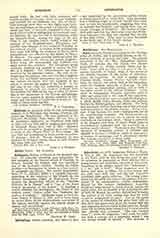

Adelmann, Bishop of Brescia in the eleventh century. Of unknown parentage and nationality, he was educated at the famous school of Chartres, in France, founded by Fulbert, and was considered one of his favorite scholars. Among his fellow students was Berengarius, to whom, at a later period, he addressed two letters. The second (incomplete) letter (P.L., CXLIII, 1289) is a valuable dogmatic exposition of the teaching of the Church on the Blessed Sacrament (Epist. de Eucharistiae Sacramento); the Benedictine editors of the “Histoire litteraire de la France” call it “one of the finest literary documents of the period”. It breathes a tender affection for Berengarius, the friend of the writer’s youth. Calvin called him “barbarus, imperitus, et sophista”. Adelmann seems to have become Bishop of Brescia in 1050, and to have taken an active share in the church-reform movement of the period, especially against the clerical abuses of simony and concubinage.
FRANCIS W. GREY

